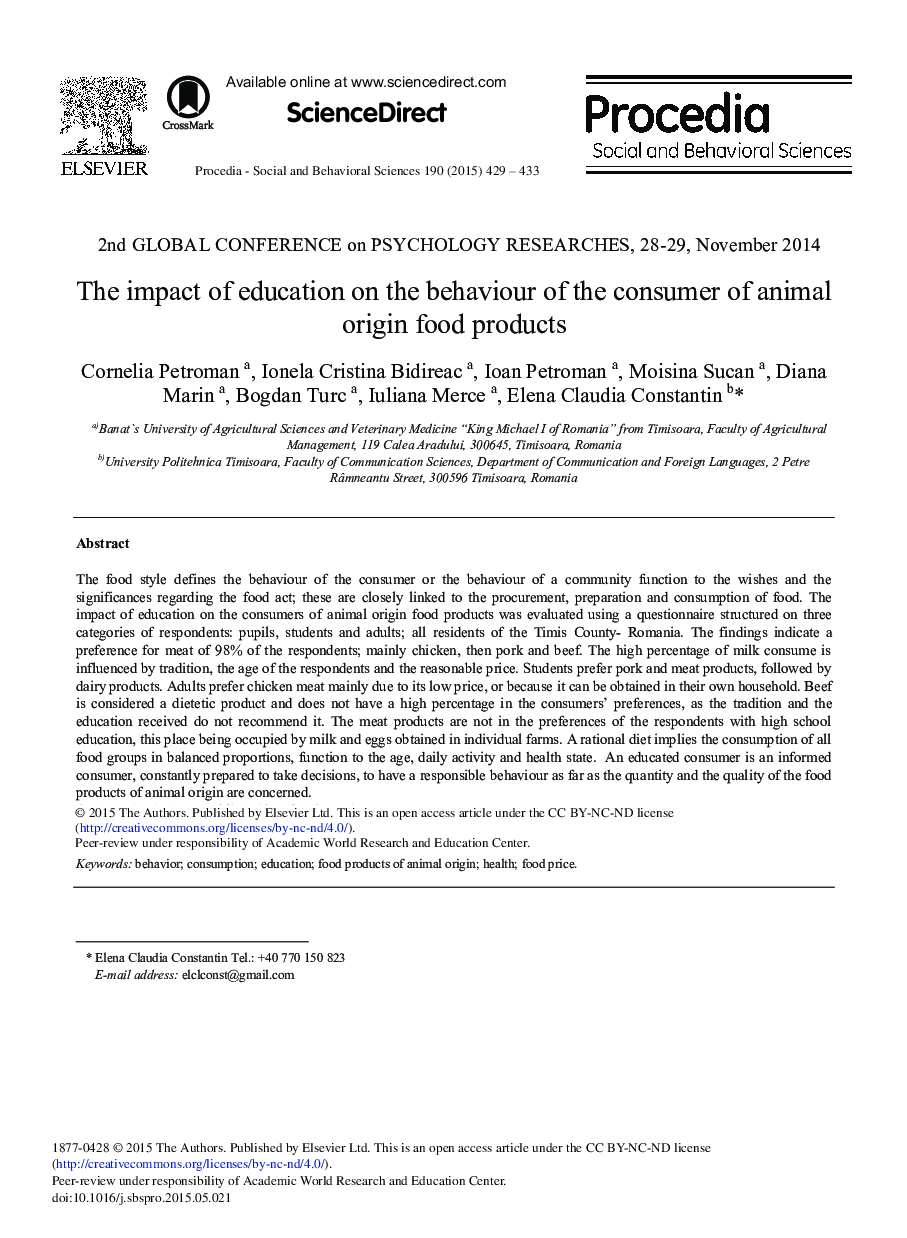| Article ID | Journal | Published Year | Pages | File Type |
|---|---|---|---|---|
| 1109574 | Procedia - Social and Behavioral Sciences | 2015 | 5 Pages |
The food style defines the behaviour of the consumer or the behaviour of a community function to the wishes and the significances regarding the food act; these are closely linked to the procurement, preparation and consumption of food. The impact of education on the consumers of animal origin food products was evaluated using a questionnaire structured on three categories of respondents: pupils, students and adults; all residents of the Timis County- Romania. The findings indicate a preference for meat of 98% of the respondents; mainly chicken, then pork and beef. The high percentage of milk consume is influenced by tradition, the age of the respondents and the reasonable price. Students prefer pork and meat products, followed by dairy products. Adults prefer chicken meat mainly due to its low price, or because it can be obtained in their own household. Beef is considered a dietetic product and does not have a high percentage in the consumers’ preferences, as the tradition and the education received do not recommend it. The meat products are not in the preferences of the respondents with high school education, this place being occupied by milk and eggs obtained in individual farms. A rational diet implies the consumption of all food groups in balanced proportions, function to the age, daily activity and health state. An educated consumer is an informed consumer, constantly prepared to take decisions, to have a responsible behaviour as far as the quantity and the quality of the food products of animal origin are concerned.
